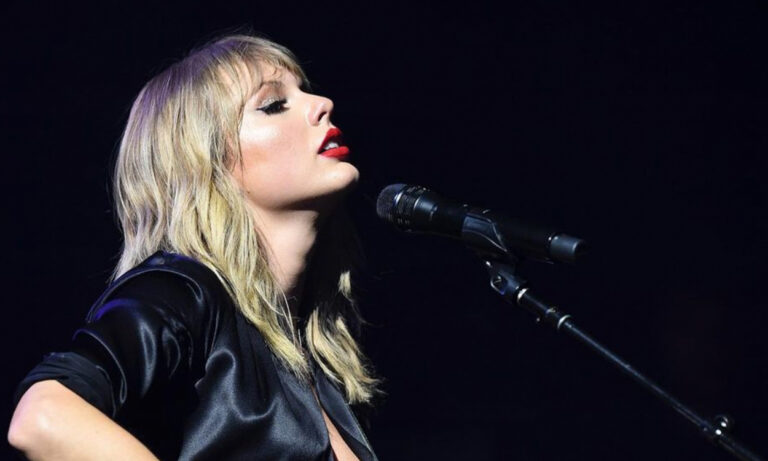US Senate to investigate Ticketmaster monopoly following Taylor Swift fiasco
On 15 November 2022, millions of Swifties swarmed the ever-exasperating Ticketmaster website in hopes of securing a prized spot at their superstar idol’s upcoming Eras Tour. After demand became overwhelmingly high—with some resale priced tickets sitting at over $22,000 a piece and reportedly over 3.5 billion total system requests for the page—the site crashed, leaving gen Zers and millennials alike overcome with grief.
On Thursday 17 November, Ticketmaster cancelled the sale, claiming that it had an insufficient ticket inventory due to the high demand there had been for presale tickets. The company later went on to state that the unprecedented demand for Taylor Swift tickets could’ve filled “900 stadiums.” Many fans expressed their frustration with the global company due to the prevalence of glitching problems and dynamic pricing—a system where prices can vary drastically depending on demand or availability.
The entire fiasco that occurred has been gripping news headlines for almost two weeks and among all of the discourse and debate, there appeared to be one general consensus: Ticketmaster is the absolute worst. There’s not a man, woman nor child alive who hasn’t laboured over the chaos and confusion that is the supposed hub of ticket sales and distribution. So, it begs the question, what happens next? Will this titan of the industry be held to account by Government officials?.
Resident social justice politician and consumer champion Alexandria Ocasio Cortez (AOC) shared her thoughts on Twitter, stating: “Daily reminder that Ticketmaster is a monopoly, its merger with Live Nation should never have been approved, and they need to be reigned in. Break them up.”
Daily reminder that Ticketmaster is a monopoly, it’s merger with LiveNation should never have been approved, and they need to be reigned in.
— Alexandria Ocasio-Cortez (@AOC) November 15, 2022
Break them up.
Why did Live Nation and Ticketmaster partner up?
Approximately 12 years ago, Ticketmaster partnered with Live Nation. The former being a titanic ticket selling company, and the latter being a monumental industry leader specialising in hosting concerts and promoting tours. For those operating inside of these two companies, it was a match made in heaven—for the consumers, it was an epic nightmare.
According to Forbes, the result of this unprecedented industry merger has been that the two companies’ monopoly has stifled any competition that might have enabled the creation of stronger rivals that could have lowered ticket prices and boosted the effectiveness of ticketing systems.
Ticketmaster versus Washington
After the recent outrage, both from consumers and high-ranking officials, the US Senate decided it was appropriate to conduct an antitrust hearing to assert whether or not Ticketmaster has too much authority and influence over the state of US ticketing.
An antitrust lawsuit or hearing occurs when officials believe the market of a particular industry is at risk due to a lack of competition. Its aim is to limit the market power of a monopoly. One such solution can be price fixing.
As reported by The Guardian, Senator Amy Klobuchar will chair the antitrust panel, and Senator Mike Lee will be the top Republican on the committee. “The high fees, site disruptions and cancellations that customers experienced shows how Ticketmaster’s dominant market position means the company does not face any pressure to continually innovate and improve,” Klobuchar told media outlets.
The Senator continued: “We will hold a hearing on how consolidation in the live entertainment and ticketing industry harms customers and artists alike.”
Ticketmaster has denied any anti-competitive practices and instead has stated that the company holds a significant share of the primary ticketing services market because of the large gap that exists between the quality of the Ticketmaster system and the next best primary ticketing system. How convenient.
Klobuchar was one of three lawmakers who argued in a letter on 21 November that Ticketmaster and Live Nation should be broken up by the Department of Justice if any misconduct was found during the ongoing investigation.
How has Taylor Swift responded?
Following the ticket fallout, Swift took to her Instagram to address the situation. The recent American Music Awards (AMA) winner stated: “There are a multitude of reasons why people had such a hard time trying to get tickets and I’m trying to figure out how this situation can be improved moving forward. I’m not going to make excuses for anyone because we asked them, multiple times, if they could handle this kind of demand and we were assured they could. It’s truly amazing that 2.4 million people got tickets, but it really pisses me off that a lot of them feel like they went through several bear attacks to get them.”
Swift concluded: “And to those who didn’t get tickets, all I can say is that my hope is to provide more opportunities for us to all get together and sing these songs. Thank you for wanting to be there. You have no idea how much that means.”
The singer has also faced recent backlash following the release of her ‘Anti-hero’ music video. In one particular clip, Swift is captured standing on a scale while the word ‘fat’ flashes onto the screen. Some netizens took umbrage with the moment in question, finding it a harmful perpetuation of a historically negative stereotype.
In regard to the upcoming Senate hearing, it is unknown as to when it will officially start, or who will be called to testify.






